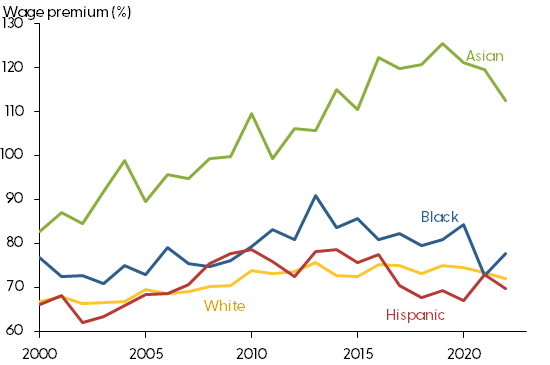By Leila Bengali, Marcus Sander, Robert G. Valletta, and Cindy Zhao. They are all with the Federal Reserve Bank of San Francisco. Excerpts:
"Workers with a college degree typically earn substantially more than workers with less education. This so-called college wage premium increased for several decades, but it has been flat to down in recent years and declined notably since the pandemic. Analysis indicates that this reflects an acceleration of wage gains for high school graduates rather than a slowdown for college graduates. This pattern is most evident for workers in racial and ethnic groups other than White, possibly reflecting an unusually tight labor market that may have altered their college attendance decisions."
"The college wage premium is typically defined as the percentage difference between average wages earned by workers with a four-year college degree and those by workers with a high school diploma."


No comments:
Post a Comment